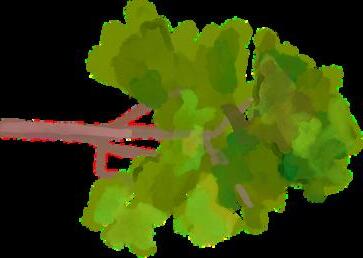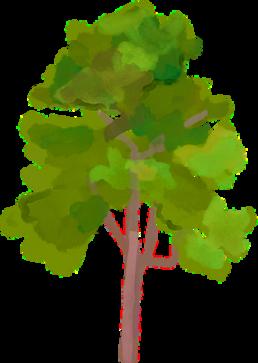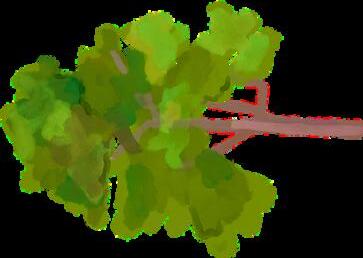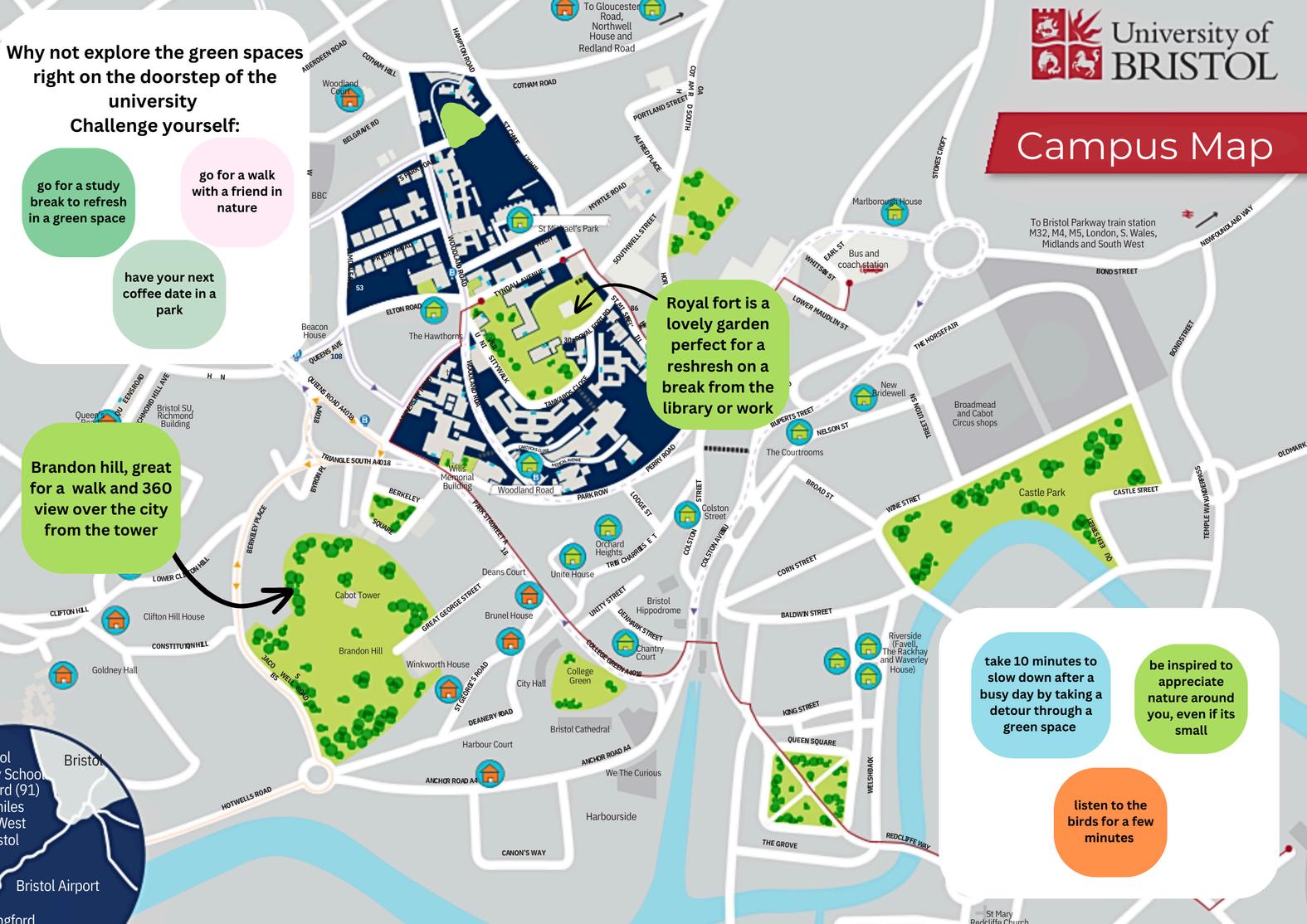





g g g







g g g

2. Slow your pace



This booklet is here to guide you to explore and connect with nature around you. Even though city nature may seem less impressive than vast landscapes, noticing and engaging with it through your senses has scientifically proven mental and physical health benefits.
Whyisnaturegoodforyou?
Research shows that interacting with nature reduces stress, improves concentration, memory, mood, and strengthens the immune system. Simply being in nature activates our bodys ‘rest and digest’ system, promoting better sleep and overall well-being.


Take this opportunity to slow things down, walk slower than you usually would, stop and take in the natural elements around you.
Follow your curiosities and explore the nature around you, notice the things and phenomena taking place around you. It doesn't matter if you don’t get anywhere, you are simply engaging with whats around you.
This slow pace can offer a refreshing break from the rapid pace of work and the city.
In the UK, people spend 80-90% of their time indoors. While the NHS recommends at least 20 minutes of daily nature exposure, it’s not just about the duration but how you engage with nature. Using your senses to appreciate your surroundings allows you to feel connected and present.
1. Find your green
Start by finding a patch of nearby nature in the city - a park with trees, a tree-lined street, garden or view from a balcony or window. You can use this booklet anywhere that allows you to take a break from the concrete and immerse yourself in a little green. Whether you have 1 minute, 5 minutes or 20 minutes.

See the inside of this pamphlet for a map of nature around campus.
3. Breathe and use your senses
Take a breath. Try to let go of your to-do list and the busyness of your brain, and use your senses to experience what is around you...
What can you notice?
Feel the breeze on your face, smell the scent of the air, the varying shades.
Close your eyes if you can and listen, how many individual sounds can you hear?
Touch the different textures and surfaces of the nature around you.
4. Reflect
Step 4. Reflect
Reflect, how do you feel? Do you feel any more relaxed, more present?
Why not try this more often? You might be surprised by how a simple walk noticing nature can calm and rejuvenate you, uplift your mood and enhance your connection with nature.
It’s as easy as a 10-minute break during lunch, an evening stroll or a few moments on your way somewhere.

Catch those moments to engage with nature in a way that best suits you, that helps you connect with nature on a regular basis.
This is supported by scientific and medical research, and the practice of Shinrin - yokuin Japan